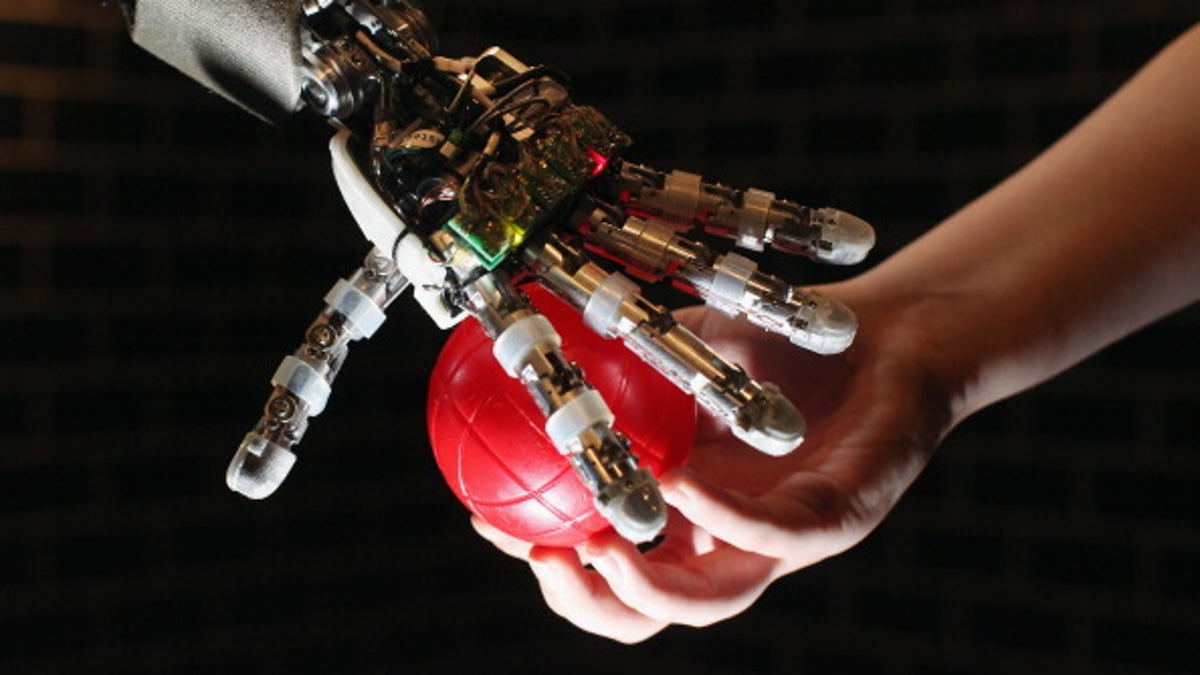
Researchers are concerned that new technology could add unnecessary pressure to the workforce. (Getty)
Many looking to increase their performance at the office may opt for brain-boosting drugs, powered prostheses and wearable computers, but experts are warning in a new report Wednesday that little thought has been given in creating a superhuman workplace.
According to academics from Britain’s leading institutions, attention needs to be focused on the consequences of technology enforcing or encouraging people to work better, longer and harder. The following upgrades may make their way to campuses and cubicles in the next decade:
Brain Boosters
Cambridge neuropsychology professor Barbara Sahakian cited research suggesting 16 percent of U.S. students already use “cognitive enhancers,” like Ritalin, to help them handle their course loads. Pilots have long used amphetamines to stay alert and at least one study suggested that the drug modafinil could help reduce the number of accidents experienced by shift workers. However, bioethicist Jackie Leach Scully from Newcastle University in England worries that the use of such drugs might focus on worker productivity over personal well-being.
“Being more alert for longer doesn’t mean that you’ll be less stressed by the job,” said Scully. “It means you’ll be exposed to that stress for longer and be more awake while doing it.”
Wearable Computers
Researchers also noted so-called “life-logging” devices like Nike Inc.’s distance-tracking shoes or wearable computers such as eyeglasses being developed by Google Inc. The shoes can record every step one makes and the eyeglasses everything being seen. Nigel Shadbolt, an expert in artificial intelligence at University of Southampton in England, reveals such devices were as little as 15 years away from being able to record every sight, noise and movement over an entire human life.
Bionic Limbs
The report also noted bionic limbs or exoskeletons, as well as the development of therapies, aimed at sharpening eyesight or implants meant to enhance hearing. While Scully notes any technology that could help disabled people re-enter the workforce should be welcomed, society also needs to keep an eye out for unintended consequences.
“One of the things that we know about technology hitting society is that most of the consequences were not predicted ahead of time and a lot of things that we worry about ahead of time turn out not to be problems at all,” said Scully. “We have very little idea of how these technologies will pan out.”
Pressurized Workplace
“We’re not talking science fiction here,” said Genevra Richardson, King’s College law professor who oversaw the report. “These technologies could influence our ability to learn or perform tasks, they could influence our motivation, they could enable us to work in more extreme conditions or in old age, or they could facilitate our return to work after illness or disability… Their use at work also raises serious ethical, political and economic questions.”
Scully said workers may come under pressure to try a new memory-boosting drug or buy the latest wearable computer. In the context of a highly pressurized work environment, she said, sometimes people feel their only choice is to adopt such technologies.
“We would be very, very against anything like that,” commented James Bower, a spokesman for Britain’s United Road Transport Union. “We can’t have a situation where a driver is told by his boss that he needs to put something in his body.”
Based on reporting by The Associated Press.
Follow us on twitter.com/foxnewslatino
Like us at facebook.com/foxnewslatino







































